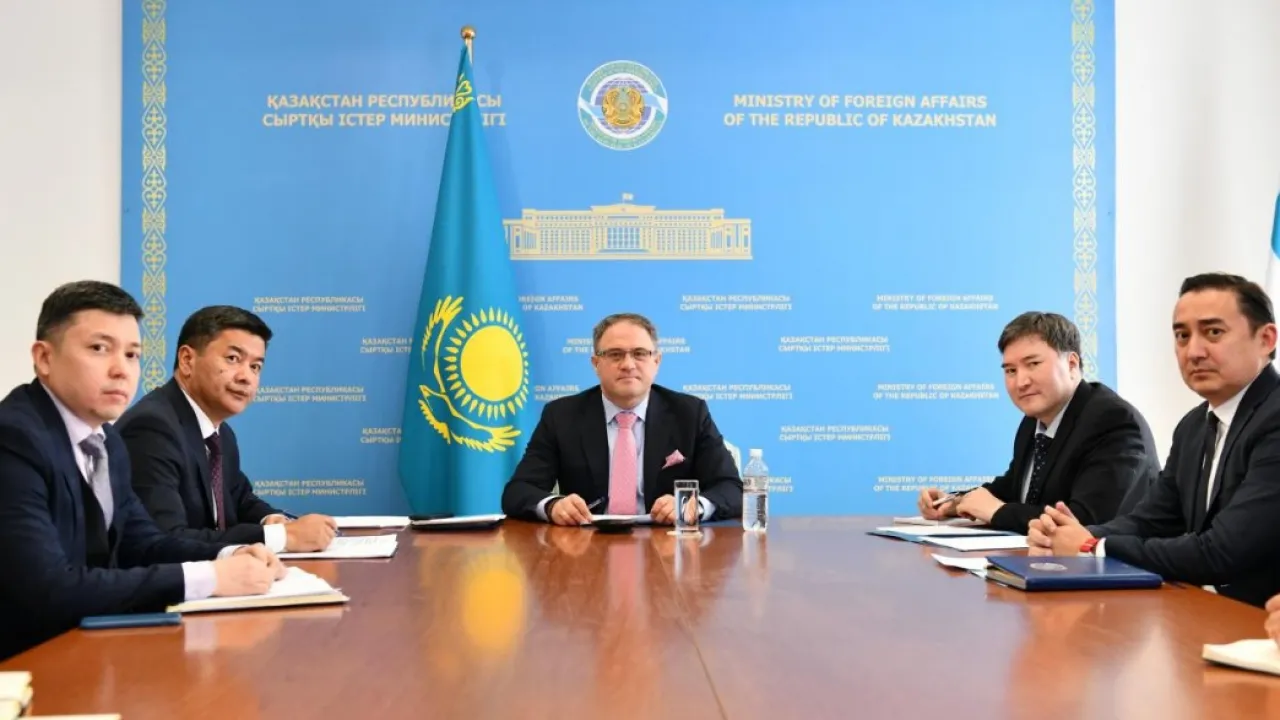Central Asia and the G7 engaged in a virtual First Ministerial Meeting to explore the region’s development prospects. The Deputy Minister of Foreign Affairs of Kazakhstan, Roman Vassilenko, participated in the online meeting, addressing various facets of cooperation, including regional security, economy, transport, energy, investment, climate change, environmental protection, water management, and tourism.
During his remarks, Vassilenko emphasized the significance of expanding trade relations, increasing G7 involvement in the region, and maximizing the potential of the Trans-Caspian International Transport Route, connecting key industrial centers in Europe and Asia. Kazakhstan expressed commitment to collaborative efforts addressing global and regional challenges, including climate emergencies, food crises, water issues, and the restoration of the Aral Sea. Kazakhstan outlined plans to reduce greenhouse gas emissions by 15% by 2030 and achieve carbon neutrality by 2060. Additionally, Kazakhstan proposed initiatives such as establishing a UN Regional Center for Sustainable Development Goals in Almaty and hosting a Regional Climate Summit under UN auspices in 2026.
Representatives from Central Asian countries highlighted the importance of increased cooperation in priority development areas and expressed readiness for further dialogue in this format.
The G7 foreign ministers and the EU High Representative affirmed their commitment to the sovereignty, independence, and territorial integrity of Central Asian states. They acknowledged existing cooperation through bilateral and multilateral channels and called for deeper collaboration in security, infrastructure development, trade, and economy. Mutual interest in enhancing connectivity, including through the Partnership for Global Infrastructure and Investment (PGII), was noted. PGII, a major G7 initiative, aims to attract $600 billion for global infrastructure projects by 2027.
The discussions delved into the impact of geopolitical turbulence on Central Asian countries, addressing challenges related to global instability, disruptions in supply chains, and strategies to overcome them.
The G7, comprised of economically developed countries, includes Canada, France, Germany, Italy, Japan, the United Kingdom, and the United States, with the European Union also participating. G7 nations are significant trade and investment partners for Kazakhstan, contributing to over 20% of its foreign trade balance. In the previous year, G7 investments in Kazakhstan’s economy increased by 30%, surpassing $8 billion, while trade turnover reached $30 billion.
















